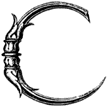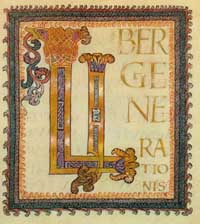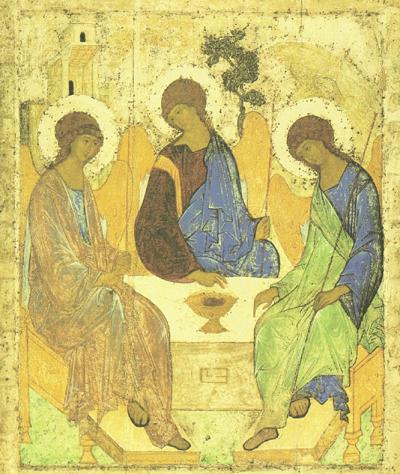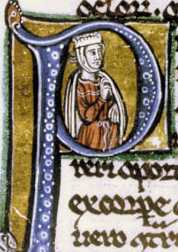| Developing the Christian Mind | ||
| Course Description | Grade Composition/Scale | Course Assignments |
| Objectives | DBU Academic Policies | Course Schedule |
| Handouts | Study Skills (outside website) | Faith & Culture Weblinks |
| Fall 2008 | |
Philip Mitchell's Office: Campus Telephone: (214) 333-5226 Learning Center #222 |
|
| Email: philipm@dbu.edu |
|
Office Hours: |
|
 extbooks extbooks |
Michael E. Wittmer, Heaven is a Place
on Earth Arthur Holmes, The Idea of the Christian College. rev. ed Os Guinness, The Call Dockery & Thornbury, Shaping a Christian Worldview Paul & Elder, Miniature Guide to Critical Thinking |
"Some seek knowledge for the sake of knowledge: that is curiosity; others seek knowledge that they may themselves be known: that is vanity; but there are still others who seek knowledge in order to serve and edify others, and that is charity." -- Bernard of Clairvaux |
 ourse DescriptionThis course, built on a biblical foundation, is designed to
introduce students to the lifelong goal of developing a Christian mind, and in the
process, to impart to them a solid understanding of the larger purposes of Christian
higher education and the educational vision of Dallas Baptist University. Topics addressed
include Christian mind and worldview development, the problem of dualism, Christian
liberal arts education, integrating faith and learning, the life of the mind, calling, and
the implications of Christian faith across the whole spectrum of life. It is required of
all new traditional freshmen and transfer students and must be taken during the second
semester of the first year year or during the sophomore year. It must be successfully
completed by the junior year. ourse DescriptionThis course, built on a biblical foundation, is designed to
introduce students to the lifelong goal of developing a Christian mind, and in the
process, to impart to them a solid understanding of the larger purposes of Christian
higher education and the educational vision of Dallas Baptist University. Topics addressed
include Christian mind and worldview development, the problem of dualism, Christian
liberal arts education, integrating faith and learning, the life of the mind, calling, and
the implications of Christian faith across the whole spectrum of life. It is required of
all new traditional freshmen and transfer students and must be taken during the second
semester of the first year year or during the sophomore year. It must be successfully
completed by the junior year. |
A. Intellectual Objectives: 1. Students will understand the concepts of a Christian mind and worldview and its biblical content based on the themes of creation, fall, redemption, and consummation. 2. Students will comprehend the definition, sources, and implications of religious compartmentalization or “dualism” (the sacred-secular split) as the fundamental obstacle to the development of a Christian mind and worldview. 3. Students will learn about the larger purposes of Christian higher education, its theological foundation, the centrality of liberal arts education, the process of integrating faith and learning, the role of community, and the marks of an educated person. 4. Students will examine the problem of evangelical anti-intellectualism, the biblical basis for the life of the mind, its role in the Christian life, education, and scholarship, and the importance of acting on knowledge. 5. Students will grasp the classic doctrine of calling in its theological, vocational, and personal aspects as the decisive foundation for purpose, meaning, and service. 6. Students will recognize the responsibility of believers to engage and transform human culture Christianly including such areas as the family, work, politics, science, the arts, and popular culture. B. Affective Objectives: 1. Students will be challenged to enlarge the scope of their Christian imaginations through an expanded knowledge of God as cosmic Creator, Judge, and Redeemer and by grasping the radical comprehensiveness of biblical faith and its inherent relevance for higher education and the whole of life.2. Students will be given the opportunity to cultivate new desires and purposes in faith, life, and learning through the formation of a biblically-based Christian mind that will transform attitudes and invigorate their educational pursuits and allow them to actualize the transformative potential of Christian higher education. 3. Students will be encouraged to discover and experience a new found spiritual freedom through a larger Christian vision that will enable them to become fully human and fully alive under God. C. Volitional Objectives: 1. Students will be encouraged to apply themselves with desire, discipline, and diligence to their studies.2. Students will be challenged to love and serve God with their whole being and to love and serve their neighbors as themselves in all aspects of life, including their educational pursuits. 3. Students will be prompted to discover the purpose and direction for their lives on the basis of their various callings and vocations from God through which they will serve and transform the church and the world, and thus glorifying God and blessing others in every area of life. 4. Students will be urged to commit themselves to the ongoing task of developing a Christian mind and worldview, obediently living out this Christian vision faithfully, and teaching it to others until the very end of life. D. Transformative GoalTo be transformed at the root of your being and in the fruit of your life! May this course do for you what the reading of Cicero’s book Hortensius did for St. Augustine at age 19:
|
 ethod of InstructionLiberal education
is not a body of knowledge that can be imparted to the student; it is the examination of
the issues raised in various sources—an examination of texts that engages the
student’s thinking about these matters but does not merely implant the
“answers” to the questions. These texts are not “taught”; they are
read, and reading is dialectical. That is, the sources are “taken seriously,” as
when one listens to a person who may know something. In this personal dialogue the reader
and the text address each other’s questions. ethod of InstructionLiberal education
is not a body of knowledge that can be imparted to the student; it is the examination of
the issues raised in various sources—an examination of texts that engages the
student’s thinking about these matters but does not merely implant the
“answers” to the questions. These texts are not “taught”; they are
read, and reading is dialectical. That is, the sources are “taken seriously,” as
when one listens to a person who may know something. In this personal dialogue the reader
and the text address each other’s questions. -- Edward Tingley Reading maketh a full man; Conference
[conversation] a ready man; Writing an exact man! With the above objectives in mind, this course will combine reading, writing, and discussion. The instructor will guide students through lecture, discussion, research, and testing. I have staked much of the success of this course on conversation -- individually, in groups, and as a class -- and on writing -- responsive, critical, and analytical. Learning is not just a passive intake of knowledge; instead, it requires an active engaging of course materials. Engaging ideas means that we do more than simply impart a supposedly received body of knowledge; instead, we question and perhaps even change in answer. I would also encourage students to think about the spiritual and ethical foundation that every good class needs. These include a regular practice of prayer, study, and worship, as well as the virtues of humility, silence, honesty, courage, and wisdom. Click here for a more detailed discussion of these matters.
Each class period will open with prayer. Because the
primary business of our classtime is to engage in the ministry of study, these prayers
will tend to be short. However, I want you to know that
this semester I will be praying for each student by name on a regular basis. If you
have prayer requests you wish to share with me, these can sent to me by email, on a
handwritten note, or shared with me after class. As your professor, I want to
support you in any way I can. |
 ate Policy ate PolicyAll major assignments submitted after the due date without an excuse will be reduced a letter grade per business day. Losing material in cyberspace does not constitute an excuse. Any material submitted by email will receive a confirmation message. If you do not receive this message, do not assume that I have received the work. If you cannot submit the work due to a valid excuse, every effort must be made to contact me before the due date. All major assignments must be submitted in order to complete the course. Students must take the final at the assigned time unless a prearranged petition is filed and approved by the Dean of the College of Humanities. Return Policy: Students will be required to return copies of the papers, interview, and exams to me at the end of the semester. These will be kept on file by the department. Students are welcome to make photocopies of all their graded work for their personal files. |
| Grades |
| A 4.00 | A- 3.67 | |
| B+ 3.33 | B 3.00 | B- 2.67 |
| C+ 2.33 | C 2.00 | C- 1.67 |
| D+ 1.33 | D 1.00 | D- 0.67 |
| F 0.00 | ||
| 940-1000 points - A | 800-839 points - B- | 680-699 points - D+ |
| 900-939 points -- A- | 780-799 points -C+ | 640-679 points - D |
| 880-899 points - B+ | 740-779 points - C | 600-639 points -- D- |
| 840-879 points - B | 700-739 points - C- | below 599 -- F |
| Grade points are earned in the following manner: | ||
| Grades Earned | ||
| Quizzes | 150 | |
| Midterm | 200 | |
| Final | 200 | |
| Interview | 100 | |
| Applying What You've Learned Paper | 100 | |
| Cultural Engagement Lectures/Events | 100 | |
| Presentation | 100 | |
| Class Participation & Daily Work | 50 | |
| You can ascertain a rough estimate of your final grade at any point in the semester with the following method: Keep in mind that we are using a point system, so I do not compute averages. Instead, what you should do is: |
|
| Papers and Reports are assigned a letter grade, which is then converted into a numerical one. Essays will be kept on file by the department. You must return major work when it is requested. |
| Quizzes will be given and added to the overall grade if I determine that the class is not coming prepared on a consistent basis. |
| If you ever have any question about a grade you earned, including at the end of the semester, please contact me. I'll do everything I can to clarify the situation. However, do be aware of the final grade posting policy (see below). |
General Standards for Essay Evaluation |
| A essay (demonstrates
unusual competence): |
| B essay (demonstrates
competence): |
| C essay (suggests
competence): |
| D essay (suggests
incompetence): |
| F essay (demonstrates incompetence): |
| [NOTE: While these serve as general guidelines for evaluation purposes, I will provide more specific standards with each assignment.] |
|
| Course Policy: University policy states that a student cannot miss more than 25% of class and receive credit for the course. However, because class participation is essential to your learning, more than two hours of unexcused absences will result in a significant penalty to the final grade. [NOTE: This includes late registration, which will be counted as excused, but will still count towards the total number of absences.] |
| Excused Absences: Sickness and the death of a loved one constitute excused absences. Other cases will be judged on an individual basis. In order to be fair to each student, some documentation must be submitted when you return to class. If you are ill, a note from the health center, a doctor, a parent, or a residence assistant is required. |
| Missed Classwork: It is YOUR responsibility to contact a fellow class member about missed discussion, revision in assignments, etc. You may make-up class work for full credit if you have an excused absence. All major assignments will be penalized 10% per business day late. Quizzes and daily work cannot be made up without an excused absence. |
| Tardiness: Excessive tardiness will be penalized. Four tardies will count as one absence. Unless you have a valid excuse, being fifteen minutes late constitutes an absence. |
| What can I reasonably and sanely do in a semester? (A worksheet for the perpetually overcommited.) |
back to top
Miscellaneous Student Information Academic Conduct Policy (DBU Undergraduate Catalogue, 2002-2004) Consistent with the Christian character and values of Dallas Baptist University and in order to encourage and preserve the honor and integrity of the academic community, the University expects its students to maintain high biblical standards of personal and scholarly conduct. All instructors or proctors shall have the right to examine materials in the student's possession during quizzes, examinations, and/or laboratory sessions. In instances of cheating during an examination or other classroom or laboratory activity or exercise, the instructor shall have the right to suspend the student(s) who is (are) cheating from further work on the examination or exercise and to deny the student(s) credit for the examination or exercise. (Please see current student handbook for details.) Academic misconduct includes, but is not limited to, the following:
The faculty member endorses the University Honor Code and abides by the University's Academic Appeal and Academic Misconduct Procedure as stated in the Student Handbook and the Schedule of Classes. Final Examination Policy: Students are expected to take the final exam at the time stated in the published schedule. If a student believes that he or she has a conflict of such nature that he or she should be allowed to take the final exam at another time, a request for consideration should be submitted in writing to the Dean of the College of Humanities and Social Sciences. Financial Aid: Students who are receiving federal, state, or institutional financial aid who withdraw or add hours during the semester may have their financial aid adjusted because of the withdrawal or addition. This change in schedule may affect the aid they are receiving during the current semester, and could affect their eligibility for aid in future semesters. Disabilities: The student has the responsibility of informing the Associate Vice President for Student Affairs, at (214) 333-5134, of any disabling condition for which the student will request course modifications. Dallas Baptist University provides academic adjustments and auxiliary aid to individuals with disabilities, as defined under law, who are otherwise qualified to meet the institutionís academic requirements. It is the studentís choice and responsibility to initiate any request for accommodations. Required documentation must be provided before the university can make accommodations. Posting of Final Course Grades: Final course grades provided to a student by a faculty member may not be relied upon as official..Students may access their official final grades online through the WebAdvisor System. The Registrarís Office will only mail grades to a student upon request. The Dallas Baptist University Undergraduate and Graduate catalogs state that "All accounts must be paid in full before a student can[. . .]receive transcripts[. . .] ." According to FERPA, faculty may not provide final grade information to students via telephone, email, posting or any other source which might compromise student confidentiality. Academic Misconduct Appeal Procedures and Academic Appeal Procedures are explained on pp. 84-87 of the 2002-2004 DBU Undergraduate catalog. Presentation Policy: Students are reminded that DBU is a Christian university. Student presentations should not use recorded video or audio material that contains excessively obscene language or material of a pornographic nature. If the student has any questions regarding the appropriate nature of material for a presentation in class, he or she should consult with the course instructor. Children in Classes and Unaccompanied Children: Minor children of Dallas Baptist University students are not permitted to attend class with their parents. Furthermore, minor children may not be unaccompanied at any location or property where Dallas Baptist University classes are taught. If a minor child is brought to the DBU campus or any location where DBU classes are taught, the child must be accompanied by an adult at all times. For their safety and welfare, unaccompanied children on the DBU campus will be escorted to the Campus Security Office and the parents or guardians will be summoned to pick them up immediately.Cell Phone Policy: Classroom disruption by cell phones or other electronic devices is prohibited. All cell phones and similar electronic devices must remain turned off and out of sight for the duration of class. Electronic devices utilized in a learning context, such as laptops and language interpreters, may be permitted at the professorís discretion. A student may face a zero and/or failure in the class if an electronic device is used for cheating during a test. Cheating at Dallas Baptist University is not tolerated and may result in expulsion. Graduating Students' Grades: It is the responsibility of the student to notify the instructor if graduating this semester. Final exams for graduating students will be given on 10 December 2004. Final exams for graduates are due in the Registrarís Office by noon on Monday, 13 December 2004. These grades are final. The instructor will not submit late grades for graduates nor change grades once they are submitted. |
| The instructor reserves the right to make changes to the syllabus as necessary. It is the student’s responsibility to be aware of any changes made during this course. |




 rayer
rayer